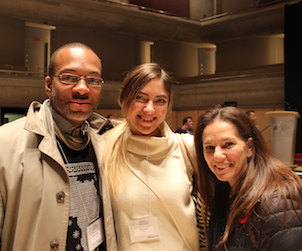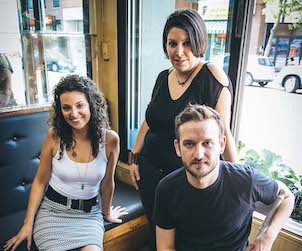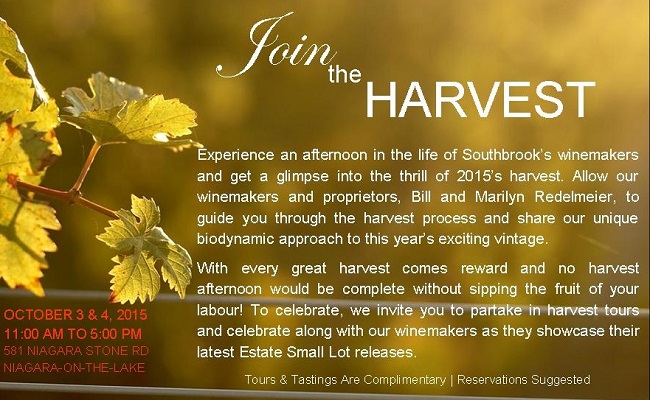by Malcolm Jolley
Prodotti, Prodotti, Prodotti!
Josée di Stasio repeats the mantra di cucina in flawless Italian (at least to my mangia cake ears), and then resumes our discussion in an elegant French Canadian accent. di Stasio is arguably the biggest star chef in Quebec. Her French language books are the top bestsellers and her television shows are among the highest rated (over 500,000 viewers will watch an episode of à la di Stasio, as she travels through Europe in search of good things to eat). Of course, no one recognizes her as we sit together on a downtown Toronto patio, nursing coffees and discussing the launch of the English version of Pasta et Cetera à la di Stasio.
Or at least we ought to be discussing the book, but we;re not really. Partly because I interviewed her a year or two ago, when the French version was out and I was curious about what was hot in la belle provence, but partly also because the book is less a collection of (simple, elegant) recipes as it is an extension of her embodiment of the new Montreal culinary culture: at once relaxed, interested in measured innovation, but always comme il faut. If a cookbook could be the bibliological equivalent of a Sunday stroll down St. Denis, then I think this might be it. Or maybe St. Laurent further north.
di Stasio grew-up in Montreal’s Little Italy in a fusion of Italo-Canadian and francophone Quebecois culture. It’s when I ask her if there isn’t something about Italian cuisine, that mirrors back the culture whence it has been transplanted, that she repeats the line about product. Still, in the way that Jamie Oliver’s cuisine is at once authentically Italian and unmistakeably English, so it strikes me that di Stasio’s recipes like ‘Brocoli-Tumeric Fettucine’ speak to the blend of Old and New Worlds that makes Montreal consistently interesting. From what other terroir could come a recipe for ‘Salami Chips’? On the first page, no less (antipasti – and, yes, you just bake slices of salami in the oven until they are crisp).
But what about that interview? I’m afraid she rendered me useless. I would ask a silly question like, “What do you think is the secret to great pasta?”. Then, she would answer with something eminently simple and commonsensical, like “less is more”. Then, I would launch into something of a monologue of agreement, and we would trade recommendations for restaurants in our respective cities, and talk about great meals we’d had around the world that expressed the principle that formed her answer. We both, for instance, had accidentally found empirical evidence that it is extremely difficult, if not downright impossible to find a bad meal in Italy, based on dinners we had in gas stations along the autostrada. This had all the makings of a delightful afternoon espresso, but has not made much of an interview.
What can I say, except à la prochaine?
Malcolm Jolley is the editor of Good Food Revolution. Follow him at twitter.com/malcolmjolley







